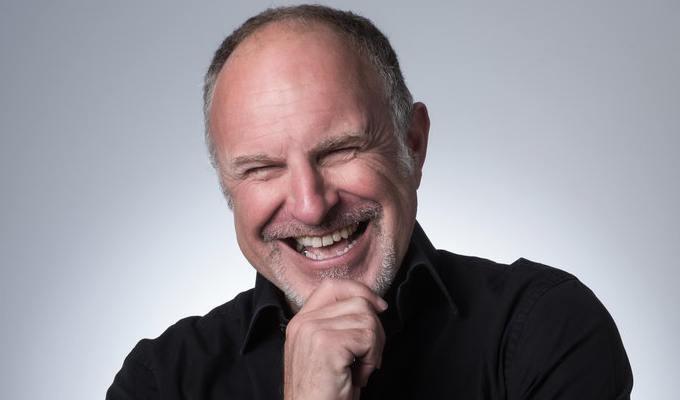The Edinburgh comedown
Ashley Frieze experiences the post-Fringe malaise
I’ve been to the Fringe ten times. I’ve just returned from my seventh Fringe as a performer and my eighth consecutive visit to Auld Reekie during the silly season. I have enough experience to recognise the signs of the come-down I’m now suffering, even though there’s not much I can do to prevent it. I thought it would help to share some thoughts on the subject; other people are probably feeling it too.
I remember reading an article last year on the post-Fringe blues, which focused on some of the physical symptoms. Depending on how you live your life in Edinburgh, it can be pretty physically demanding and destructive. Perhaps you enjoy the drinking until 5am most nights, filling your body with the products from the local breweries and whatever toxins the Scottish bar staff forgot to rinse from the glasses/pipes. Perhaps you've been enjoying the Edinburgh chip shops so much that oil, salt, ‘soss’, starch and saturated fat are coursing through your veins as though fibre was never invented.
Perhaps you’ve been roaring at audiences, or roaring with laughter, to a point where your throat can’t function without alcohol and oily food to ease the pain. Maybe you’ve been holed up in venues where there are hundreds of years’ worth of bacteria stored in the walls in an atmosphere of sweat, humidity and general illness generation. Alternatively, you might just be exhausted from climbing every single hill and staircase in the three-dimensional Scottish capital, rushing from place to place, building up calf muscles you could put on a skewer and call a doner kebab.
There’s no doubt about it, a few weeks in Edinburgh is a big hit to the immune system, and can use up reserves of energy that take a while to get back. Yet, I think there’s more to recovering from the Fringe.
I find that the cut and thrust of rushing between performing and seeing shows affects my emotional stability while in Edinburgh. It’s probably to be expected. Within a 10, 20, 30 or 60 minute performance, you either experience or create some sort of miniature dramatic arc - the highs and lows of the show. Each of these is a wave of emotion, several a day is probably called mood-swings.
As a performer, there is also the pre-show nerves and the post-show aftermath. Though I don’t experience nerves particularly strongly, I know I enter an altered state for each performance, and after a couple of days in Edinburgh performing several times a day, I pretty much stay in that state. Whether it's a frame of mind or an adrenaline high, I don't know; either way, it changes the way I feel. After a few days doing this, I feel like my sense of funny gets polarised. If something is funny, it's bloody hilarious, and if something’s less funny, it's totally flat.
Midway through my time Edinburgh, I usually get a bit irritable as though my nerves have been buffeted by the various performances. Then I settle down into a general sense of good cheer - there's always another show only a few minutes away, the city is full of people I know and like, and there's potential around every corner for something amazing to happen.
I think the key to post-Fringe blues is that you have to slow down again. There isn't going to be another show for ages, relatively speaking. You aren't going to see people you know on every street corner until next year. You don't need to check your watch to see if your 5 minutes of between-show spare time are up. You now have the time to come down from the highs you experienced. In short, real life is nowhere near as busy or fun.
Looking at how I feel in September, I suspect I go through a sort of grieving process. At first, there’s denial: it’s not really over, I can read reviews still, I can make a plan to take my show to other venues, I can go and see loads of comedy if I want. Then we skip Anger and Bargaining (unless we either got a bad review, or have to negotiate the payment for a good one) and go straight to Depression: what’s the point of the real world now? The fun is over! Finally there’s acceptance: it is going to be ok. Real life can continue at a normal pace and it will be fine. It was last year and the year before.
Jokingly, I posted on my Facebook that we should all just go back to Edinburgh and demand to do more shows; surely if enough of us did that, the festival could continue. The silly part of this is that, before the Fringe, I seldom bothered using Facebook, and I certainly wasn't hitting refresh on my email as often then as I am now!
Suddenly I'm looking for support from my social network, and I suppose other comedians are doing it too. It seems like September is the month when the comedy community pulls together and girds its collective loins for the next season. Just as the festival can't be forever, so the new season must begin. We'll probably contact each other and try to organise gigs and see whether our Fringe shows have any future. We’ll see each other at gigs and talk about the highs and lows of our Fringe experience. Many comedians’ sets will, in the month of September, include an obligatory Fringe story. In short, I think we'll have a collective wake for the loss of our festival.
Come October, Fringe 2009 will be buried and we'll be able to move on. Until then, I guess some people will be hitting refresh on the Chortle home page a few times too often.
Published: 3 Sep 2009






